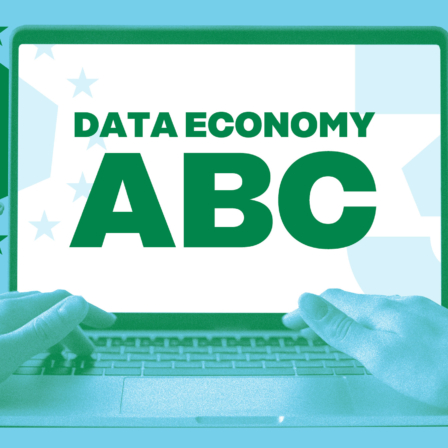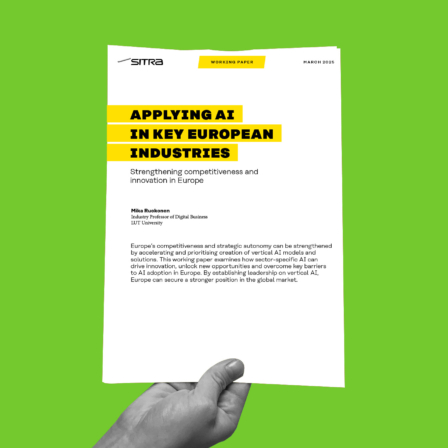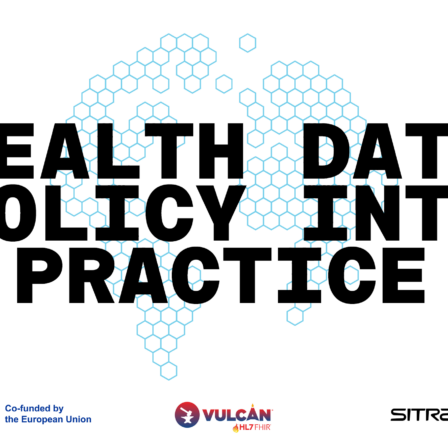Background
The Finnish Innovation Fund Sitra has participated in the European Commission’s public consultation and issued a statement on the revision of EU competition rules.
Under current EU competition rules, agreements and other forms of co-operation between companies are prohibited in the internal market under certain conditions. Exemptions to the competition rules are stipulated by the rules, which are now subject to revision. The rules apply to R&D agreements, specialisation agreements and horizontal co-operation between companies. Horizontal co-operation refers to agreements between current or potential competitors.
The present revision is aimed at updating the exemption rules to better correspond to today’s challenges. At the same time, they are to be updated to reflect the requirements of the green transition and digitalisation.
In line with the European data strategy published in February 2020, the internal market for data and the fair data economy require the support of well-functioning competition regulations that take into account the challenges of fast-evolving markets, particularly for SMEs.
The Commission’s initiative is part of the broader revision of EU competition rules. This includes a review of state aid guidelines for digitalisation projects and a broadening of the regulatory framework. The broadening of the scope of regulations includes the Digital Services Act and Digital Markets Act, published in December 2020.
Sitra’s main observations
Sitra notes that digitalisation development should play a more central role in the revision of competition rules. Digitalisation and the data economy have changed the world significantly since the current competition rules took effect in the early 2010s. The implementation of the European data strategy and the rapidly evolving innovations will further reshape the operational environment.
Competition rules are intended to safeguard the public interest and protect consumers and sustainability. Sitra points out that European legislation must support the development of a fair data economy. But, at the same time, care must be taken not to inadvertently stifle the emergence of innovative data-driven business models.
Legal uncertainty could prevent innovation and the development of the data economy if businesses choose to share and use data cautiously. In Sitra’s international business survey (23 May 2021), a third of respondents from large companies and SMEs identified complex regulations as the biggest challenge to operating in the data economy.
Sitra believes is that current competition rules are not sufficiently clear and easy to interpret from a data economy perspective. The revision of competition rules should focus on the pro-competitive aspects of data sharing rather than looking at companies’ market shares.
Sitra believes that the needs of SMEs in particular should be addressed. SMEs play an important role in safeguarding market plurality, but they have fewer resources than large companies to comply with regulatory requirements.
Data economy business models are based on the sharing and use of data between businesses. The use and sharing of data can further increase its value. Sitra considers it important that data can be used and shared between businesses as widely as possible to support innovation.
In the data economy, a company’s competitiveness is determined by its ability and willingness to share data with others and make increasingly creative use of data. This is why the opportunity to collaborate with potential or actual competitors, for example in data ecosystems, can be vital for a company.
According a Sitra report (2 June 2021), the barriers to data ecosystems are often a lack of trust and reluctance to share data.
In addition to competition rules, a European soft infrastructure is needed, meaning widely adopted agreements and standards between the parties. To this end, Sitra has developed a Rulebook for a Fair Data Economy. This contains tools and agreement templates to help businesses build a data network.
Sitra’s statement can be read in the document attached to this article.
Further information
Read Sitra’s statement on the revision of EU competition rules.



















Recommended
Have some more.